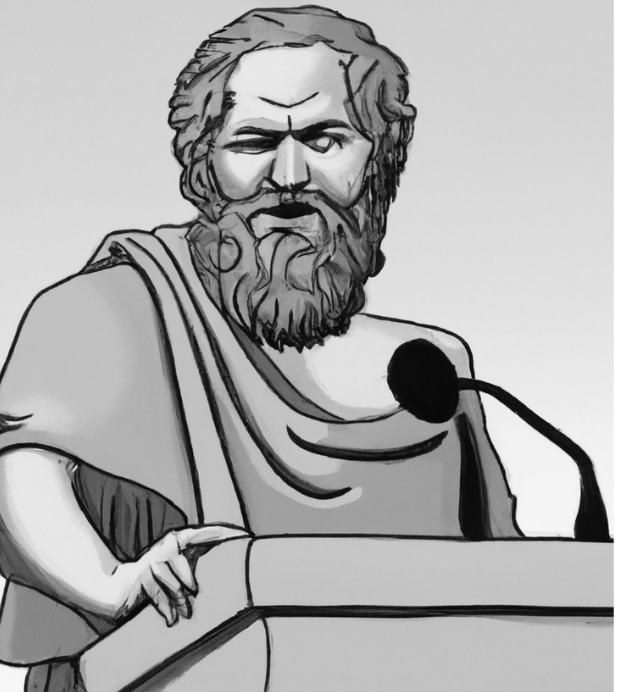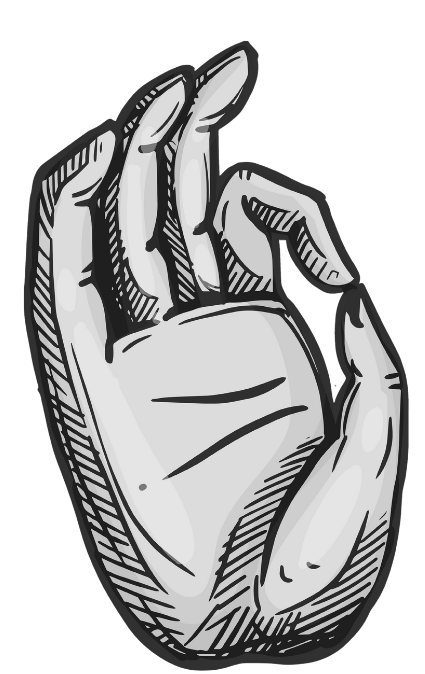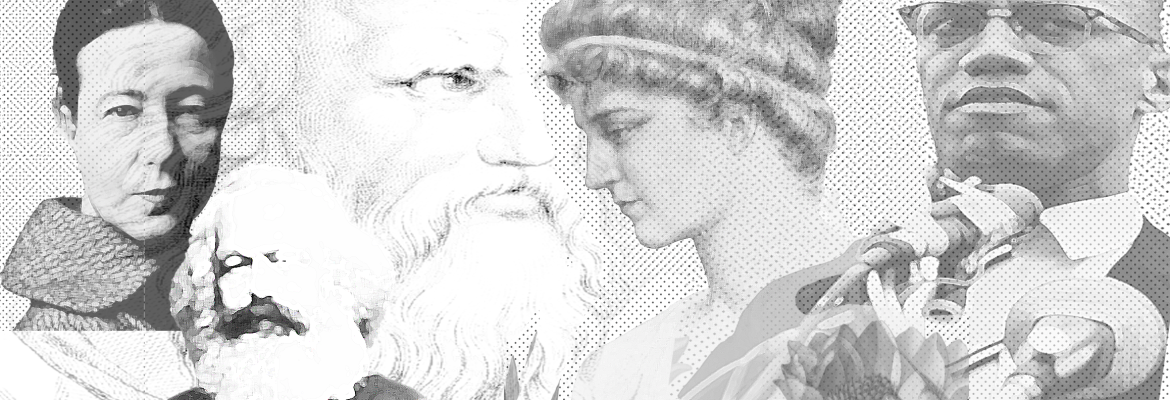PHI 105 (80292)Philosophy thru History, Online Class
*Meets Cultural Interpretation Requirement
An introduction to philosophy through its history and development, i.e., through an examination of central texts in the history of philosophy, up to and including contemporary works. Specific readings may vary from semester to semester, but will always include some canonical works by classic Western philosophers (e.g., Plato, Aristotle, Descartes, and Kant). Prerequisite: a college writing course. Kenneth L. Knight, kenneth.knightjr@maine.edu
PHI 201(81386) – Public Philosophy
ONLINE * Satisfies the Engaged Learning Requirement

What is the public? Is public debate possible? In recent years “fake news,” “cancel culture,” and the rise of “conspiracy theories” have called into question the very possibility of public and debate and discussion. At the same time private and fleeting opinions about everything from political scandals to popular culture have become increasingly public, shared to millions of strangers (sometimes to detrimental effects for the individuals involved). In this world it seems hard to imagine that philosophy can have any impact at all.
This course is an examination of the public role of philosophy. First, we will look at the concept and history of the public sphere, its importance to democracy and the way that the public sphere has been transformed by changes in technology from the printing press to the smartphone. We will then look at how important historical transformations such as the civil rights era were made possible by public intellectuals such as W.E.B Dubois, Martin Luther King, Jr., Malcolm X, and Fred Hampton. We will then turn our attention to three contemporary public intellectuals, William Paris (who will be on campus on October 16th), Naomi Klein’s Doppleganger: A Trip into the Mirror World and Kohei Saito’s Slow Down: The Degrowth Manifesto. We will read their books, but also look at the way that they have used websites, substack, podcasts, and even movies to communicate their ideas. All of this is to set up students to do their own engagement in public philosophy, experimenting with how they can make their voice heard. Jason Read, jason.read@maine.edu
PHI 205 (80747) Logic -MW, 12:30 PM – 1:45 PM, Portland, Yishai Cohen*Meets Quantitative Reasoning Requirement*
Techniques to distinguish good from bad reasoning through the study of formal and informal logic including fallacies, inductive and deductive arguments, truth tables, evidence, and rules of implication.
Yishai Cohen, yishai.cohen@maine.edu
PHI 211 ( 81475) Media Ethics, Tuesday and Thursday, 11:00 – 12:15 PM, William Seeley*This course meets the Ethical Inquiry requirement*
It has been argued that democracy stands and falls on the backs of an informed and rational citizenry. John Milton & John Stuart Mill suggested that the media plays a critical role in this context through what they called the marketplace of ideas. They thought he truth should always emerge from the competition of ideas in a free and transparent public discourse. Contemporary perspectives are less sanguine about the idea of free and transparent unbiased information in mass media communication. Nonetheless the underlying sentiment stands. We regularly seek out objective sources of information in mass media to shape our understanding of the world and aid in our everyday judgements and decisions. We will discuss a range of ethical issues surrounding mass media practice including questions about privacy, confidentiality, truth telling, conflicts of interest, and social responsibility in journalism, the impact of digital media on contemporary journalism, empathy and bias in the formation of beliefs, and the role of social media in the marketplace of ideas. Along the way we will explore the foundations of philosophical ethics and examine the nature of good critical reasoning practices. William Seeley, william.seeley@maine.edu
PHI 212 (80293) Environmental Ethics, ONLINE, *7-WEEKS*, 10/21/2024-12/13/2024, Julien Murphy
*This course meets the Ethical Inquiry requirement*

The ethical issues central to climate change are a focus. The course analyzes the relations between human beings, animals, and nature in the Anthropocene. Do we have responsibilities to non-humans, future humans, climate refugees, and those worse off by climate change? Do we have a right to clean air, water, food, and land? We address a range of ethical arguments and social movements aimed at climate responsibility and environmental justice. Julien Murphy, jmurphy@maine.edu
PHI 275 (82651)- The Nature of Compassion Online, Sandra Dutkowsky*This course meets the Ethical Inquiry requirement*
Whether and how we respond to the suffering of others defines, in many ways, who we are as persons and communities. This course is an investigation into compassion and its social role. Drawing upon a wide variety of sources it will address philosophical defenders of the need to cultivate compassion. Students will have a chance to think through some important philosophical issues, such as the role of emotions in moral deliberation, the extent to which compassion can be both aided and obstructed by the use of language, and whether there are appropriate limits to compassion.
Sandra Dutkowsky, sandra.dutkowsky@maine.edu
PHI 285 (81137)- Biology, Technology and Ethics, Online, William Seeley*This course meets the Ethical Inquiry requirement*
An examination of key ethical controversies in biology and bioethics focused on the impact of medical technologies on our concepts of health, disease, & illness. Topics covered include the growing field of neuroethics and ethical questions surrounding cochlear implant technology, artificial reproductive technologies, CRISPR and gene drives, genomics, synthetic biology, DIY biology, and garage biotech.
The goals of this course are threefold. We will the impact of medical and research technologies on our concept of health. We will evaluate these issues in the broader context of utilitarian, deontological, virtue-based, and feminist approaches to philosophical ethics. Finally, good reasoning is critical to objective discussion of any topic. A critical takeaway of this class should be a better understanding of good critical reasoning strategies. William Seeley, william.seeley@maine.edu
PHI 291 (80710) – Death and Dying, Online, Sandra Dutkowsky*This course meets the Ethical Inquiry requirement*
The literature relating to death and philosophy is vast and complex. In this class, we will explore readings relating to the nature of death (ourselves and others), the goodness/badness of death, and the ethics of death and technology.
The study of the philosophy of death typically leads to a discussion of the meaning of life.Therefore, we will review some essays relating to that idea as well. Finally, we will take an interdisciplinary approach and read some literary pieces that deal with these philosophical issues. Sandra Dutkowsky,sandra.dutkowsky@maine.edu
PHI 295 (82652)- Medicine, Madness, and Disease, Online, *7-Weeks*, 9/3/2024-10/18/2024, Julien Murphy
*This course meets the Ethical Inquiry requirement*

Recent advances in modern medicine and medical technology challenge traditional notions of health, sanity, and the social order. The course will examine some of the controversial ethical dilemmas that patients, families, and health care providers confront, such as informed consent, truth-telling, genetic testing, abortion, gender-affirming care, human cloning, assisted suicide, organ transplantation, research ethics, health care access, and for-profit control of health care delivery.
Julien Murphy, jmurphy@maine.edu
PHI 301 (82653)- Ethical Theories, Tuesday and Thursday 12:30 – 1:45 PM, Yishai Cohen*This course meets the Ethical Inquiry requirement*
This course is an introduction to ethics. Ethics is, very roughly, the study of rightness/wrongness and goodness/badness. To be a bit more precise, ethics is often divided into three categories. Value theory is the study of what makes someone’s life good or bad for them. Normative ethics is the study of what makes an action morally right or wrong. Metaethics is the study of whether goodness and badness (and rightness and wrongness) are either objective or merely subjective features of the world. Yishai Cohen; yishai.cohen@maine.edu
PHI 305 (82654)-Political Philosophy, Tuesday and Thursday 2:00-3:15, Jason Read*This course meets the Ethical Inquiry requirement*
Machiavelli famously asked was it better for a leader to be feared or loved, placing emotions at the center of political life in The Prince. Philosopher’s such as Hobbes, Spinoza, and Rousseau have wondered about the role of fear, hope, and empathy in political life. It seems harder and harder to avoid the politics of emotion, as anger, fear, and hatred dominate political life and debate. Why are politics increasingly expressed in emotional or affective terms? What does the politics of emotions tell us about the meaning of collective and individual identities of race, gender, and nation. How has social media contributed to the political organization of affects? In this course we will examine both the history of thinking about the politics of emotions and contemporary theories of emotions. Readings will include John Protevi’s Political Affect: Connecting the Social and the Somatic, Frédéric Lordon’s Imperium: Structures and Affects of Political Bodies, and Joseph Vogl’s Capitalism and Ressentiment: A Brief Theory of the Present. Jason Read, jason.read@maine.edu
PHI 310 (87779)-History of Ancient Philosophy, Online, Kenneth Knight*This course meets the Cultural Interpretation requirement*
What is the relationship between philosophy and the history of philosophy? In an attempt to find an answer to this question, we will recover and reengage the foundational problems as well as some of the proposed solutions that set the Western philosophical tradition in motion. Of course, returning to the Western philosophical tradition’s point of origin means returning to Ancient Greek philosophy. This semester we will investigate some of the major contributions from the Pre-Socratics, Plato, and Aristotle in order to better understand them in their own historical context and to consider whether they remain viable approaches to genuine philosophical problems in our contemporary context.
Kenneth Knight, kenneth.knightjr@maine.edu
PHI 355 (81385)-Contemporary Feminism, Online, * 7-WEEKS* 9/03/2024=10/18/2024, Julien Murphy*This course meets the Culture, Power, & Equity/ Diversity requirement*
This course examines recent work in feminist political and social philosophy by American and European feminist philosophers related to the intersections of gender, race, class, and sexuality. We will explore the unique contributions of philosophy to feminist theory. Cr 3.
Julien Murphy, jmurphy@maine.edu

REL 299, Intro to World Religions (82553), ONLINE, Bennett Comerford This course will provide a basic understanding of the world’s major religions (Buddhism, Hinduism, Judaism, Christianity and Islam). It will explore the nature of religion through the shared characteristics of ritual, sacrifice, prayer, pilgrimage, and service/ethics as well as modern approaches to war, political power, the environment/climate change, and sexuality/gender within the world religions.
Bennett Comerford, bennett.comerford@maine.edu


